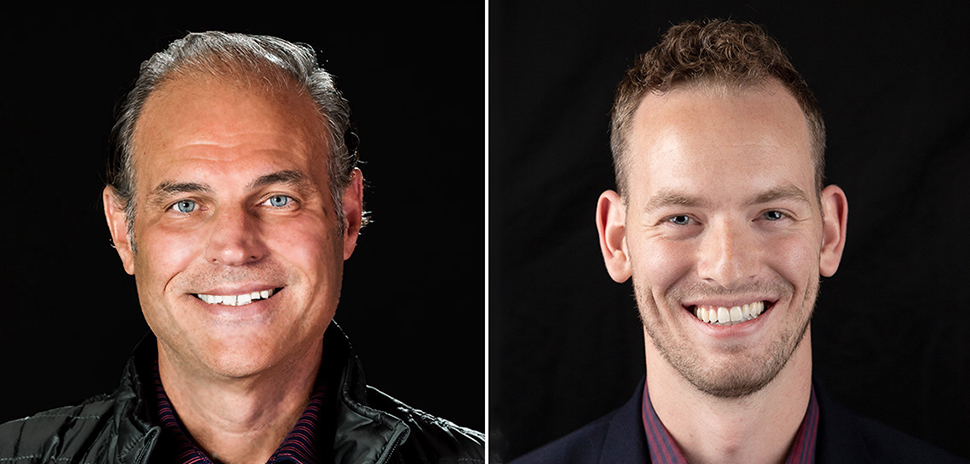A new investment firm has its eyes on emerging consumer brands in North Texas and beyond.
Pitted Ventures, a newly formed Utah-based growth capital firm with the backing of a family of support companies, has tapped a local leader to help it bridge funding gaps for brands while providing wraparound services to help those business grow to the next stage.
“We want to create this ecosystem, this platform environment [that’s] more than just a capital solution for these companies and their founders,” said Greg Russell, Pitted Ventures’ Dallas-based managing partner and former founding partner of Austin financial software firm Finlyte.
Launching a $50 million fund
Pitted Ventures is launching with a $50 million fund, aiming to provide bride funding between seed and Series A funding rounds for consumer-facing brands. While remaining open to numerous types of products, Russell said the firm will be targeting companies with strong metrics in things like customer acquisition costs, return on advertising spend, and revenue growth. They’ll be seeking founders with the drive to scale, especially in consumables that are healthy and environmentally responsible.
“It’s one thing to have a product, but [you need] to transition that and really build the brand and that community feel with the consumer base,” Russell told Dallas Innovates. “That’s the kind of progression that you want to see, or you want to see that opportunity to grow. We’re going to try to be focused on the financial metrics that we feel like are important indicators to the success.”
With Dallas as hub, typical investments of $750K to $1.5M
Starting this summer, Pitted Ventures will seek to make revenue-based equity investments typically between $750,000 and $1.5 million in companies with revenue between $3 million and $10 million—specifically in Dallas, Austin, and Salt Lake City, Pitted’s home base. Russell said Dallas is a hub for the space given the amount of warehousing space, number of co-packers in the area, and amount of longstanding consumer-focused companies headquartered here, including JCPenney and Sally Beauty.
He added that Pitted Ventures will also look at the Denver and Boulder areas, as they are established markets for vegan and other “clean” foods.
“You’ve got a lot of traditional historic companies and brands here that have been in [consumer goods] areas,” Russell said. “I think we’ll have a second wave of people recycling back through [the ecosystem] over again.”
Building brands with multiple Pitted companies
Pitted Ventures aims to be more than just a source of funds for the companies it invests in. The firm is the newest of a group of companies all bearing the Pitted name, set up to help consumer brands—specifically those selling on Amazon—build their e-commerce businesses.
The first company was Pitted Labs, an e-commerce consultancy founded in 2016 by Tyler Allgaier. About a year and a half ago, Pitted Logistics was formed to provide warehousing and logistics services for the brands Pitted Labs was helping. Russell said Pitted Logistics plans to have physical warehousing operations in Dallas within the next 12 to 18 months. The Pitted brand also includes a proprietary marketplace insight platform. Combined together, the companies work to support and scale companies Pitted Ventures invests in.
“For a lot of these small to midsize companies, capital certainly helps,” Russell said. “But they need help building infrastructure.”
Pitted Ventures’ investments also include a partnership with accounting automation software company Nimbl, to provide corporate accounting and financial reporting services for its portfolio companies—things Russell says many brands outsource due to small team sizes.
Q&A
Dallas Innovates sat down with Russell to talk more about what makes a brand scalable, what makes Dallas a hub for consumer brands, and what trends he has his eyes on in the space. Here are edited excerpts of our conversation:
What separates a small business from a brand ready for venture capital funding?
It’s having more infrastructure around you and more support around you. Some people get into the business on a part-time basis, as a side gig to make some extra money. But as a professional representing outside institutional capital, you want to make sure you’re partnering with somebody that’s got a more deliberate business plan.
You have to work with people who really show the desire to scale that business, to grow it, and to make it much larger than it is. I think that’s a real important differentiator. And then you’re looking at all the other attributes: Is it connecting with the right community? Is there enough market out there? Are they able to expand? Is it the right product? Is it the right messaging? Is that connecting into this community? Your best marketing and advertising are going to be people that love your [products]. That’s the strongest advertising and marketing that can ultimately happen.
How would you characterize the DFW ecosystem?
As I’ve gotten into this more and more, I’ve been surprised at the presence in the community here. It has strength in food and beverage, there’s a lot of co-packers here in the Dallas-Fort Worth area, as well as cosmetics. You have some of these older, more traditional consumer goods companies, consumer product companies that have been in the Dallas-Fort Worth area a long time. You have these offshoots of companies.
What industry trends do you have your eyes on today?
The market is evolving. It’s maturing. Many of what were young consumer product companies pre-pandemic, have gotten fairly large—the ones that have been successful. You’re going to see more of those businesses being sold. You’re probably going to see some consolidation, some acquisition activity in some of those brands.
Because of all of that, there’s been a lot of capital that’s been raised for brand aggregators to buy these smaller companies, building these virtual digital brand portfolio businesses. So that’s bringing capital down-market into the smaller brands.
We’re creating an alternative for founders that don’t yet want to sell their companies, they want to continue to grow. And we want to provide some longer-term growth capital.
As this market is maturing, you’ll have a second wave of startups with the same founders, like in so many industries. People don’t necessarily leave an industry, they stay in it, they develop skills and relationships around it, and they have capital sources. So you’re going to see a second wave of these young start-up emerging brands.
![]()
Get on the list.
Dallas Innovates, every day.
Sign up to keep your eye on what’s new and next in Dallas-Fort Worth, every day.




































































